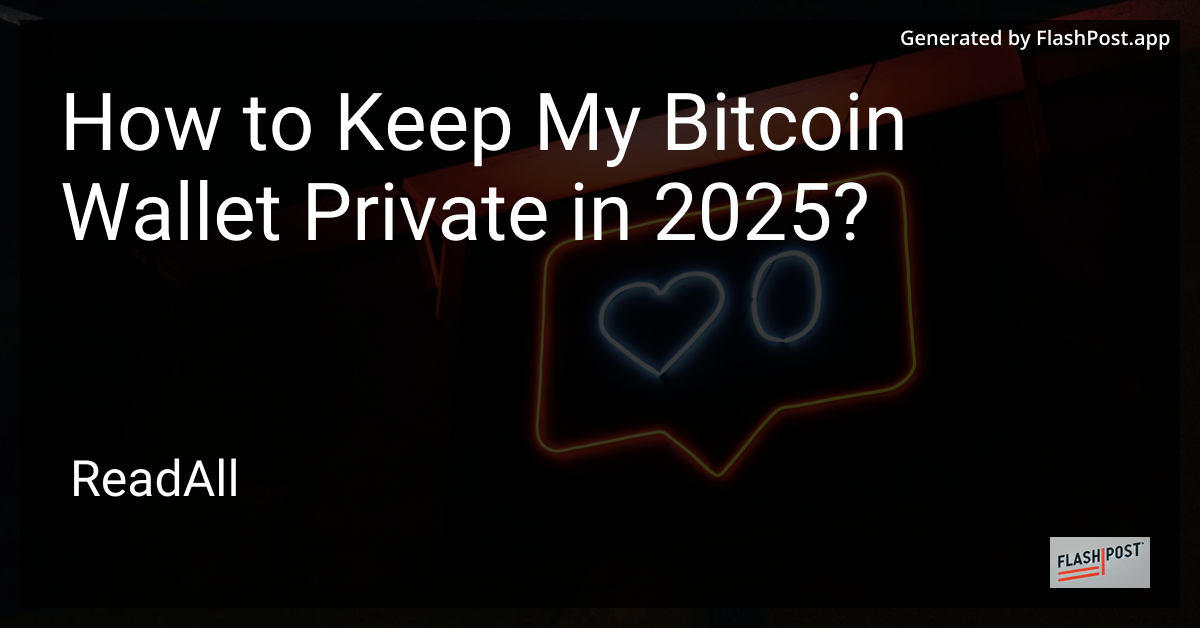
In 2025, as cryptocurrencies become increasingly mainstream, ensuring the privacy of your Bitcoin wallet is more critical than ever. With advanced technologies and sophisticated methods being developed to breach digital security, it is essential to stay ahead with modern strategies to keep your crypto assets safe. Here’s how you can maintain the privacy of your Bitcoin wallet effectively.
1. Utilize a Hardware Wallet
Hardware wallets remain one of the most secure options for storing your Bitcoin. Unlike software wallets, hardware wallets store your private keys offline, significantly reducing the risk of online attacks. Popular hardware wallets like Ledger Nano X and Trezor Model T offer robust security features to keep your assets isolated from potential online threats.
2. Use Segregated Networks and VPNs
Controlling the network connections through which you access your Bitcoin wallet is key in maintaining privacy. In 2025, using VPNs and segregated network environments has become commonplace among security-conscious users. VPN services encrypt your internet connection, disguising your IP address and adding another layer of privacy.
3. Enable Two-Factor Authentication (2FA)
Two-Factor Authentication adds an additional barrier for unauthorized users attempting to access your wallet. Even if your password is compromised, 2FA ensures that hackers cannot get in without the second authentication step, which commonly involves a code sent to your mobile device.
4. Regularly Update Wallet Software
In a continually evolving tech ecosystem, developers often release updated versions of wallet software to patch vulnerabilities and add new security features. Make it a habit to update your wallet software regularly to benefit from enhanced security measures.
5. Adopt Best Practices in Password Management
Despite advancements in technology, the fundamental aspect of a strong password cannot be overstated. Employ a password manager to create and store complex passwords that aren’t easily guessed. Avoid reusing passwords or using easily obtainable information such as birthdays or names.
6. Be Cautious with Online Information Sharing
Oversharing on the internet is one of the most overlooked risks. Ensure that you do not inadvertently disclose sensitive information in online forums or social networks that could be used to exploit your wallet security. Being discreet about your ownership and activities related to Bitcoin is a smart practice for enhancing security.
Essential Resources for More Insights
- Learn about the creator of Bitcoin and the history behind it.
- Check out insights on best Bitcoin wallets to choose the right one for your needs.
- Understand the concept of Bitcoin dollar-cost averaging as a strategy for investment.
By following these suggestions, you can significantly enhance the privacy of your Bitcoin wallet in 2025. Stay informed and proactive to secure your cryptocurrency holdings against emerging threats.